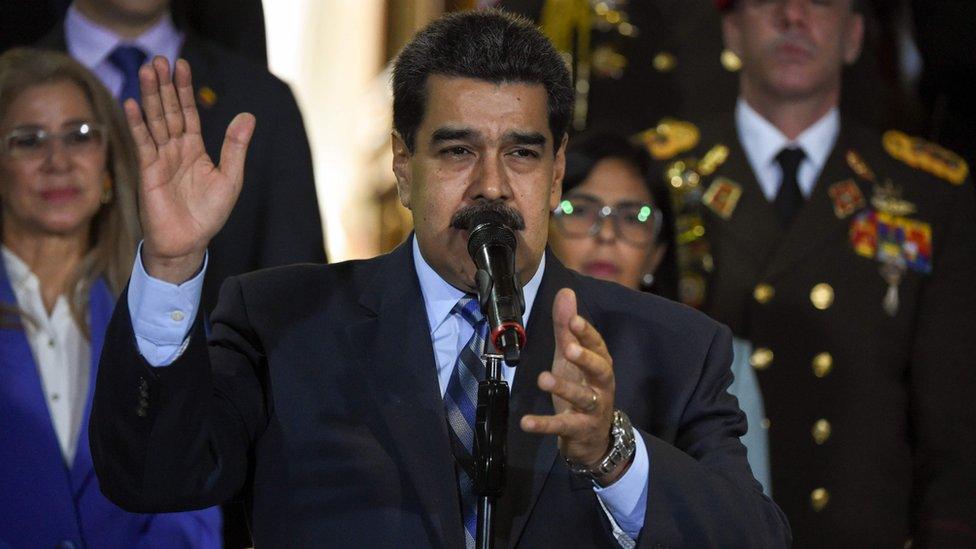Venezuela crisis: Outrage over navy captain's death in custody
- Published
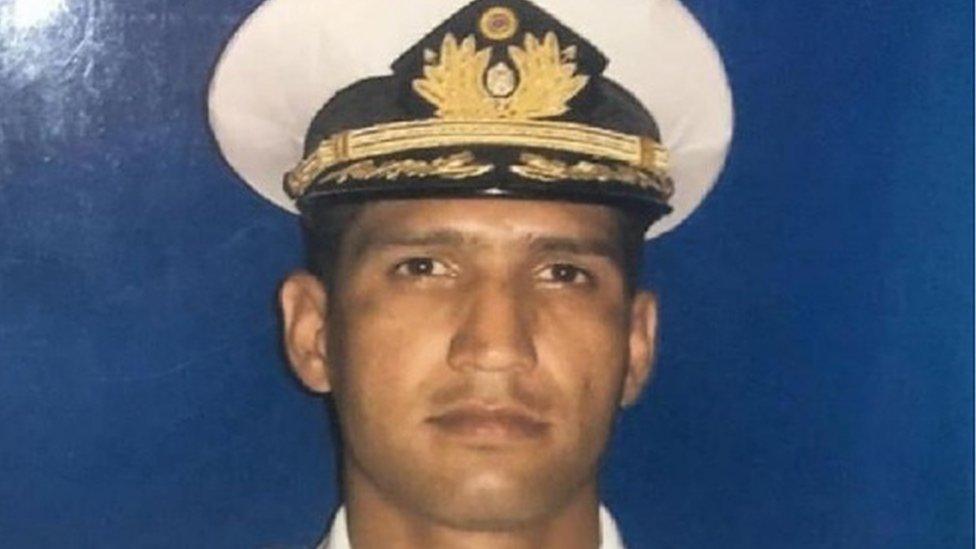
Navy captain Rafael Acosta in a tweet from opposition leader Juan Guaidó
The death in custody of a Venezuelan navy captain has sparked outrage, with his lawyer alleging he died as a result of torture.
Rafael Acosta, 49, was arrested over an alleged plot to assassinate President Nicolás Maduro.
Capt Acosta appeared in a military tribunal on Friday, but fainted before proceedings to charge him with treason and sedition began.
He was taken to hospital but died early on Saturday, officials said.
Two men have been charged in connection with his death, according to Venezuela's attorney general.
Tarek William Saab said that the men were members of Venezuela's General Directorate of Military Intelligence and have been charged with homicide.
What happened to Capt Acosta?
According to his wife Waleska Pérez, the navy officer with the rank of corvette captain was seized by members of Venezuela's intelligence service and the military's counterintelligence agency on the afternoon of 21 June in Guarenas, a city 40km (25 miles) east of Caracas.
On 27 June, Venezuela's prosecutor general released a list of names of 14 Venezuelans - among them six members of the police and military - who he said had been arrested the previous day for allegedly taking part in a plot to kill President Maduro. Capt Acosta's name was on the list.
On 28 June, Capt Acosta appeared before a military tribunal at Fuerte Tiuna military base in the capital, Caracas.
What state was he in?
According to Venezuelan human rights lawyer Tamara Sujú, who lives in exile in the Czech Republic, Capt Acosta was taken into the court room in a wheelchair and was showing "serious signs of torture".
"He didn't speak, he only asked his lawyer for help. He could not hear or properly understand. He was asked to stand up, but couldn't," Ms Sujú wrote on Twitter [in Spanish], external.
"When asked whether he had been tortured by the DGCIM (military counter-intelligence agency), he nodded but he could barely get words out. He just said 'help, help'. He was already in a critical state," Ms Sujú, who has been campaigning for the rights of Venezuelan prisoners, added.
Defence Minister Vladimir Padrino released a statement saying that Capt Acosta had fainted as he was being taken before the military judge.
The statement says that the judge ordered the navy officer be transferred to a military hospital, "where despite receiving due medical attention, he died".
Capt Acosta's defence lawyer, Alonso Medina Roa, said his death "the result of the savage torture he fell victim to".
"We have been denouncing this, but the complicity of the institutions allowed it to go this far," Mr Medina added.
Capt Acosta's wife said that "they tortured him so much that they killed him".
What was he suspected of?
The government of President Maduro said Capt Acosta had been charged with "grave acts of terrorism, treason and attempted assassination of the president".
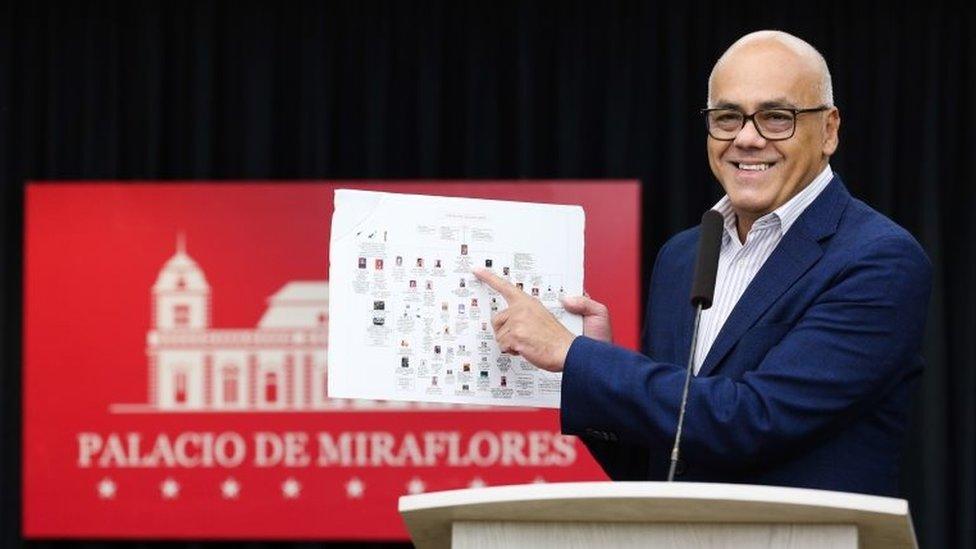
Communications Minister Jorge Rodríguez said a plot to kill Mr Maduro had been foiled
However, statements released by the attorney-general's office and the defence ministry said Capt Acosta had not yet been charged when he was transferred to hospital.
Communications Minister Jorge Rodríguez said his arrest was linked to an alleged plot to kill President Maduro, his wife Cilia Flores and the head of the government-run National Constituent Assembly, Diosdado Cabello.
According to Mr Rodríguez, Capt Acosta was tasked with blowing up the communication antennae at Fuerte Tiuna military base and placing explosives in a key tunnel and highway as well as breaking into the vault of the central bank to steal hundreds of rifles kept there.
The plot was allegedly planned for 23 or 24 June, officials said. Fourteen people, civilians and members of the security forces, have been arrested in connection with this latest alleged attempt to overthrow President Maduro.
What's the reaction been?
The US State Department condemned "the killing and torture of" Capt Acosta who "died while in the custody of Maduro's thugs and their Cuban advisers".
The Lima Group, a regional body made up of a dozen Latin American countries and Canada, called Capt Acosta's death an "assassination".
The European union said Capt Acosta's death was "another stark illustration of the arbitrary nature of the judicial system in the country and of the lack of guarantees and rights for those under detention".
Opposition politicians in Venezuela said the captain's death in custody was "an abominable event" which words could not describe.
UN High Commissioner for Human Rights Michelle Bachelet urged Venezuela to conduct an investigation into Capt Acosta's death.
She said: "I am shocked by the alleged torture of Captain Acosta and that his treatment in custody may have been the cause of his death."
Venezuela's attorney general said Capt Acosta's death would be investigated.
What's the background?
President Maduro has intensified a crackdown on the opposition since a failed military uprising against him in April led by opposition leader Juan Guaidó.
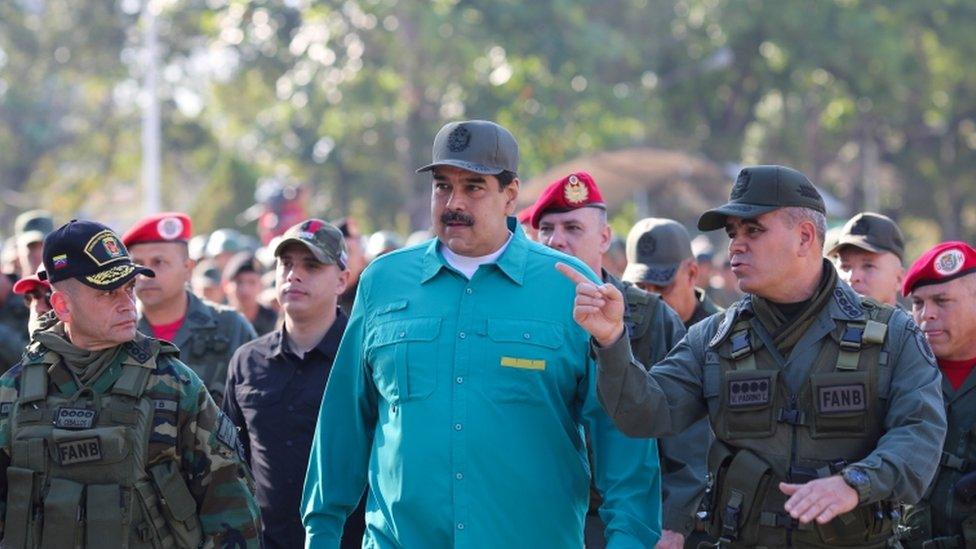
Mr Maduro is still being backed by military chiefs who are seen as crucial to him keeping power
Since the failed rebellion, described by Mr Maduro as part of a US-orchestrated coup, many opposition MPs have lost their parliamentary immunity and some have been arrested.
While Mr Guaidó's parliamentary immunity has been lifted, he has so far not been jailed, even though he recently said he did not rule out the use of military force to oust Mr Maduro from power.
Juan Guaidó on how the political crisis may develop
Amid the worsening crisis, some four million people have fled Venezuela since 2015, according to the UN.
- Published24 June 2019
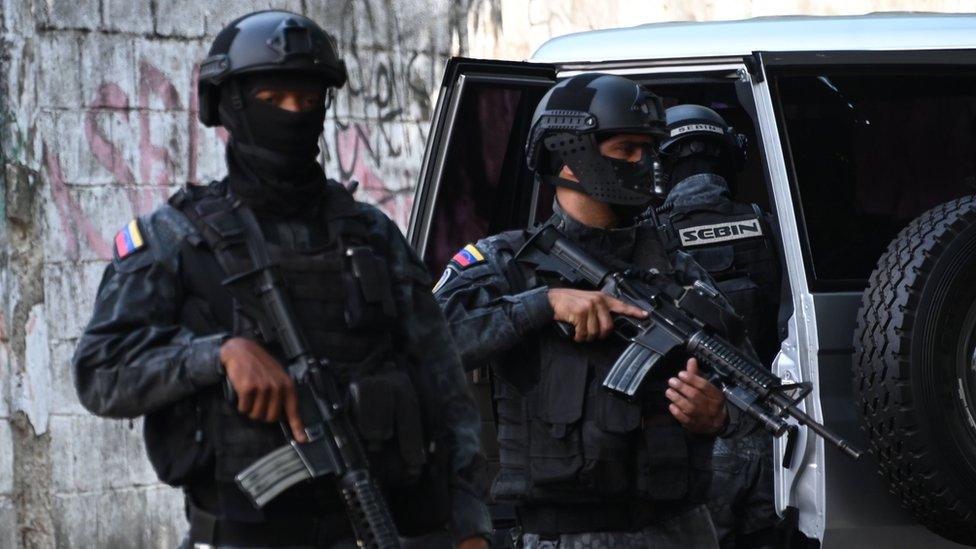
- Published28 June 2019
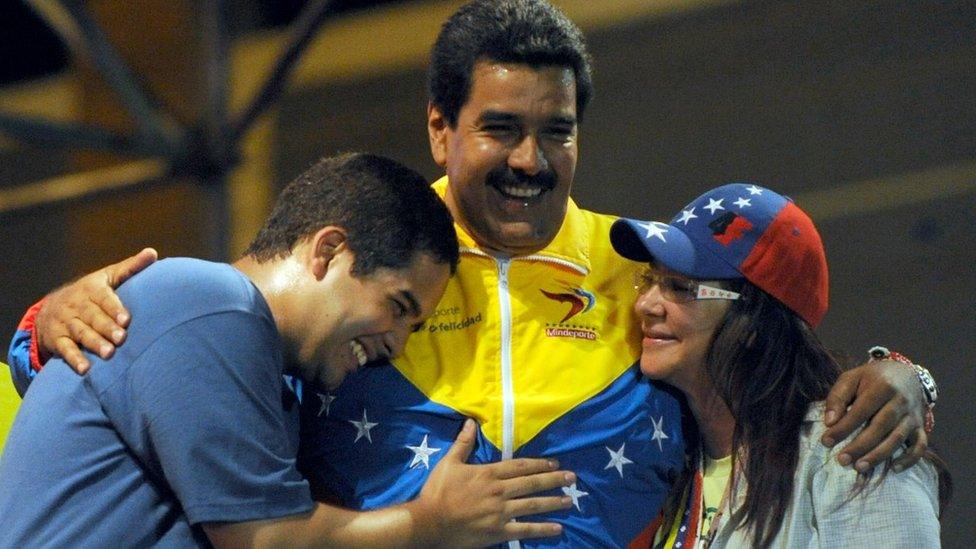
- Published27 June 2019
